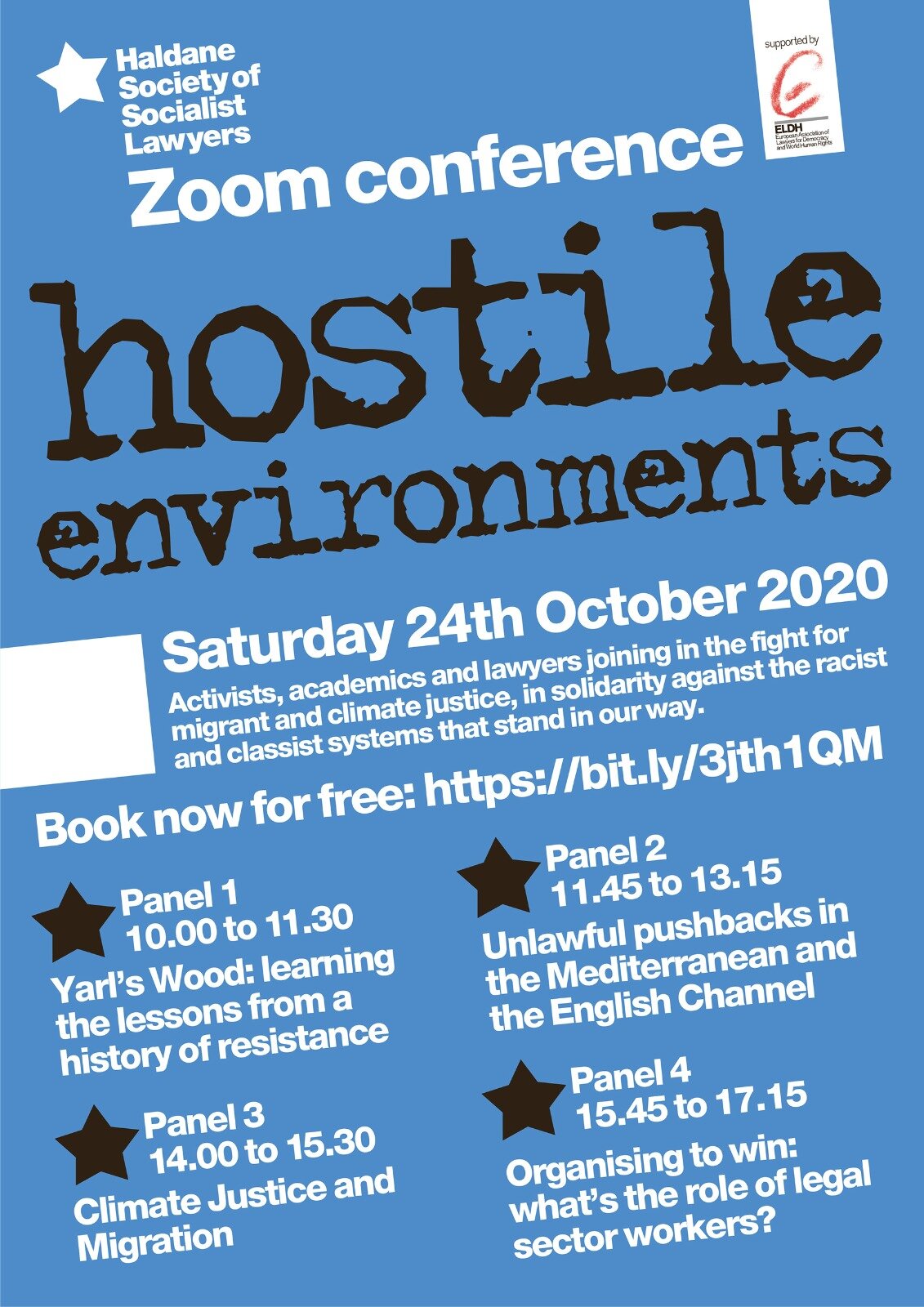Condemnation of the Police, Crime, Sentencing and Courts Bill
/The Haldane Society of Socialist Lawyers condemns the Police, Crime, Sentencing and Courts Bill (‘PCSCB’) which passed its second reading on 16th March 2021. We are gravely concerned that this Bill contains multiple threats to the right to peaceful protest, lacks adequate measures to protect women, will serve to criminalise communities and is a bonfire of our basic civil liberties.
We further note that despite its gravity, the PCSCB has been rushed through by the Government at an alarming and opportunistic rate; giving less than a week between its publication and second reading. This is a derisory timescale, and has meant that the general public, affected communities MPs and their staff, have been obstructed and denied the opportunity to fully understand what the devastating impact of this Bill will be. The Bill passed with an exclusively Tory vote of 359 votes for and a cross party vote of 263 against, with Labour MPs being told to vote against it.
This Bill should be seen as a continuation of the slide to authoritarianism that this country has seen in recent times at the hands of a Tory government. This attack on our basic civil liberties should be seen in the same context as the Trade Union Act 2016, the Covert Human Intelligence Sources (Criminal Conduct) Bill (the ‘Spycops Bill’) and the Overseas Operations (Service Personnel and Veterans) Bill.
The PCSCB, dubbed the ‘Police Crackdown Bill’, will:
· Further extend already draconian police powers, giving them new powers against static protests, granting the ability to impose allocated times and where they can be held, and enforce maximum noise limits (amongst other measures);
· Prevent protests outside Parliament;
· Expand powers to shut down peaceful demonstrations;
· Introduce new offences for protesters, including on the basis of causing “serious annoyance”;
· Increase penalties and lower the thresholds for breaching police conditions on protests;
· Reduce public access to the countryside by creating a trespass offence, which will serve to criminalise the way of life of Gypsy and Traveller communities.
It is also worth noting that the Ministry of Justice, the courts and the wider justice system have been allocated no extra funding from the Treasury in its recent Budget to accommodate the demands of the PCSCB.
As well as serving to criminalise communities, the implications and scope of this Bill are huge for any individuals calling for economic, environmental and social change, and further criminalises the right to challenge existing power structures.
We urge the government to scrap the above provisions. We urge the Labour Party to do more to oppose the Bill and continue to stand against it. We call on our members, comrades, concerned activists and targeted communities to publicly condemn the PCSCB. The Haldane Society stands in solidarity with the individuals, groups and MPs who have publicly opposed the Bill, as well as those most affected by it.



